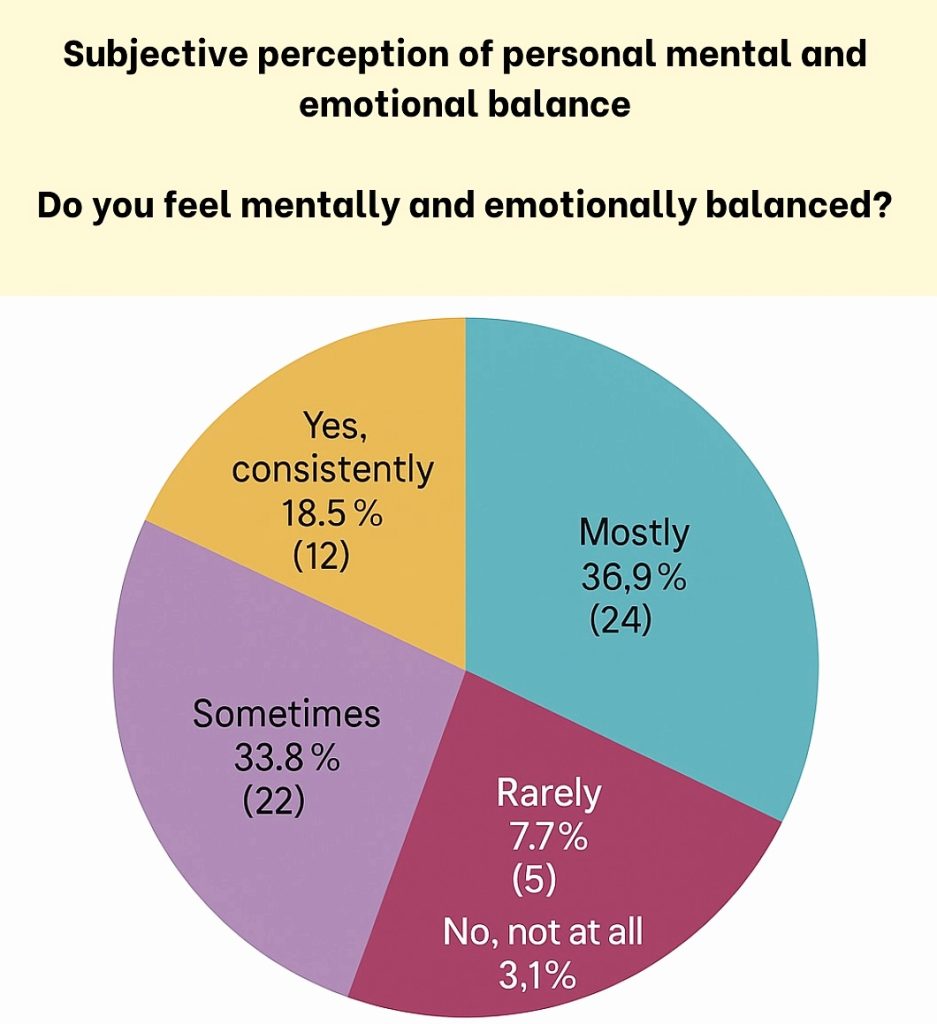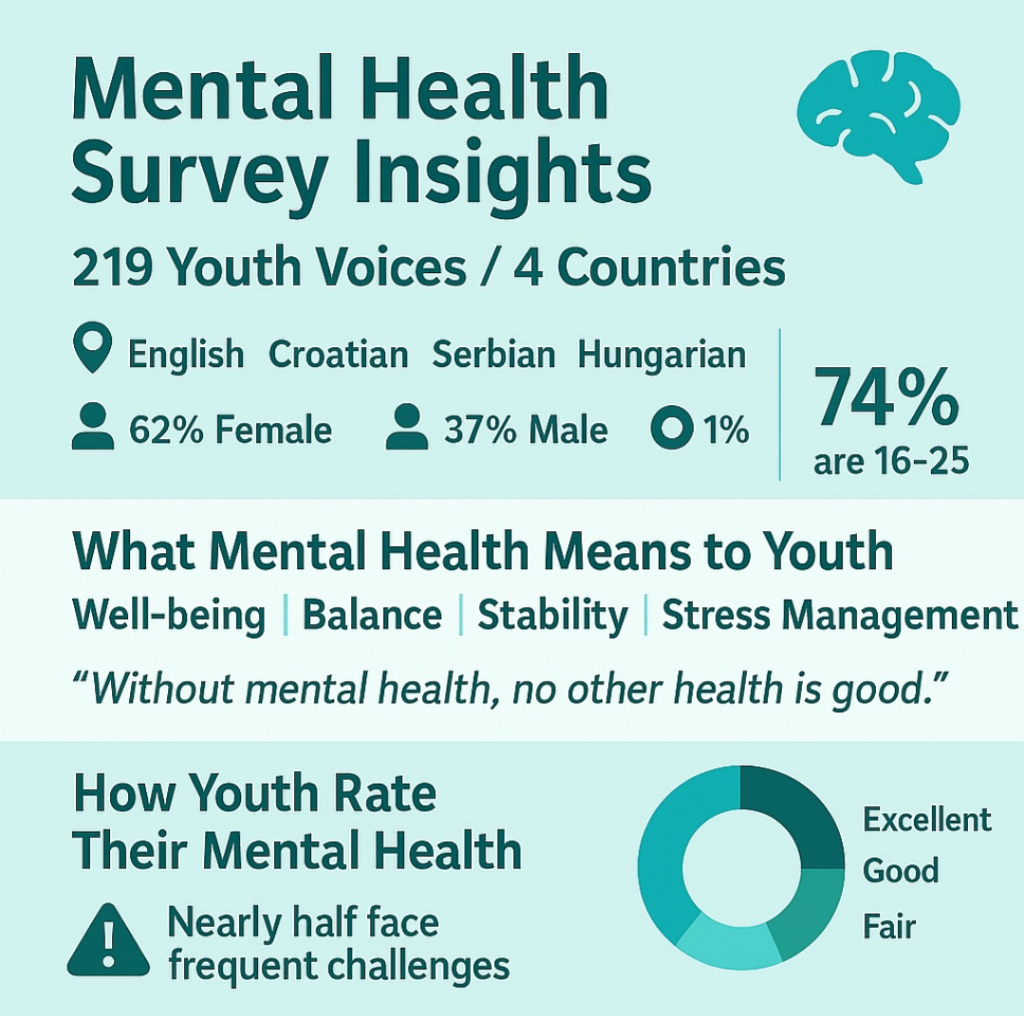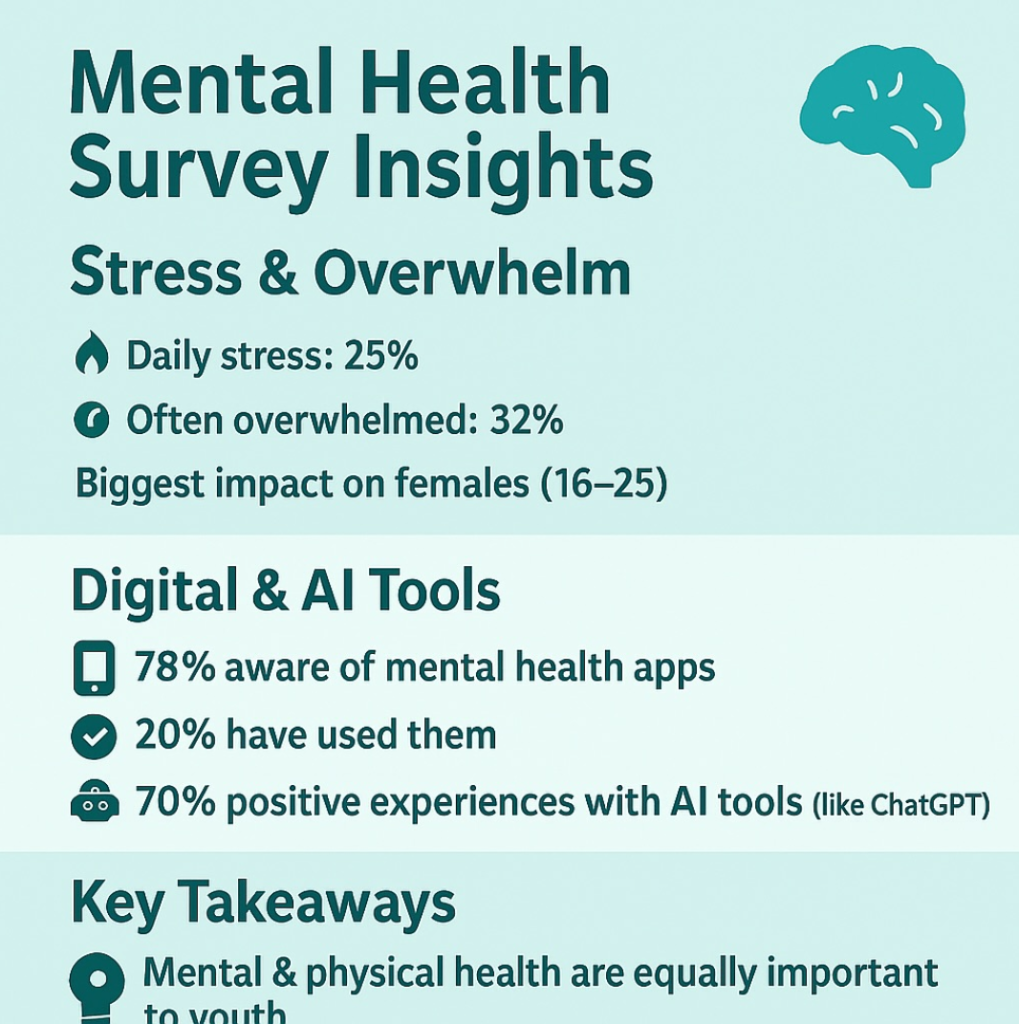As part of a KA210 youth project, a survey was conducted among 219 young people from Serbia, Croatia, Hungary, and one more partner country. The results shed light on how youth understand mental health, how they experience it, and what kind of support they feel they need.
When asked what mental health means to them, the young participants most often spoke about well-being, balance, emotional stability, and the ability to cope with stress. These were not abstract concepts but everyday realities, shaping how they study, work, and build relationships. One respondent expressed it in simple but striking words: “Without mental health, no other health really matters.”

The self-assessment of their mental health painted a mixed picture. While a smaller number described their state as excellent, and nearly half said it was good, many others admitted that they often struggle, describing their mental health as only fair or, in some cases, poor. The survey shows that almost half of the participants face frequent challenges, pointing to the need for stronger support systems.
Stress appeared as one of the main issues. A quarter of the young people said they experience stress on a daily basis, while nearly a third reported feeling overwhelmed. The pressures are felt most strongly among younger respondents between 16 and 25, with girls and young women being particularly affected.
The digital world also plays an important role. A large majority of young people are aware of mental health apps, though only about one in five have actually used them. Interestingly, many reported positive experiences with artificial intelligence tools such as ChatGPT, which they often use as a way to organize their thoughts or simply to vent when they feel overwhelmed.
Despite the challenges, the survey results also carry a message of hope. Most young people said they believe mental and physical health are equally important, and a striking 88 percent said they feel comfortable discussing mental health, even though stigma still lingers in many communities. Their interests point toward practical solutions: workshops, mobile apps, digital trackers, and above all, peer support.


The findings clearly suggest a path forward. Young people are calling for mental health education in schools, spaces where they can support one another, and approaches that take into account gender-specific needs. They also highlight the importance of making professional help more affordable and accessible, while at the same time promoting the safe and responsible use of digital and AI tools.
At the heart of it all is a simple goal: to empower youth with the tools, the language, and the safe spaces they need to thrive — because when mental health is cared for, everything else in life becomes easier to handle.
